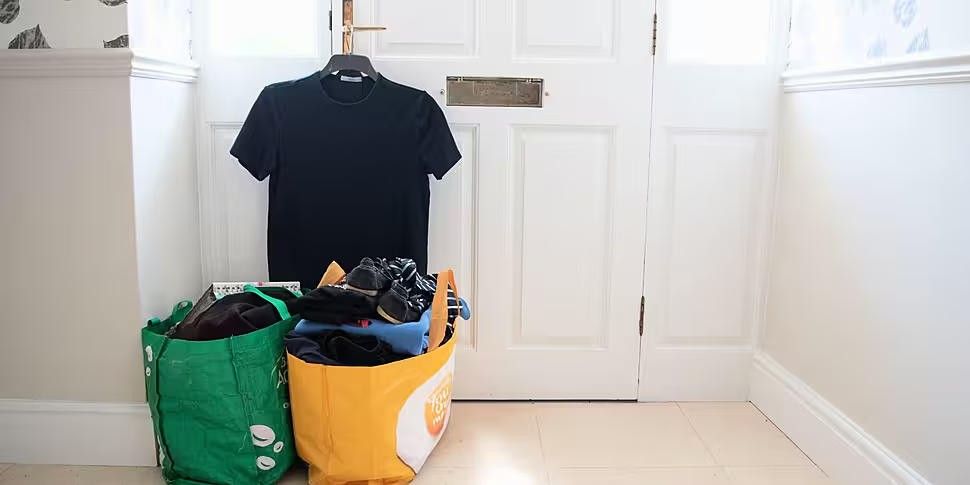After clearing out unworn and unwanted clothes, consumer journalist Sinead Ryan is determined to not replace anything.
The host of The Home Show on Newstalk said between seasons, she typically does a clear-out of her wardrobe.
She told Newstalk Breakfast this week that she has decided to approach decluttering in a more "systematic" way.
"I'm not a big fashionista, I don't buy a lot of clothes, but I still had too much," she said.
"Some of those post-COVID purchases – we were all buying our clothes online during those times, not trying them on and then suddenly realising, 'What was I thinking? This is an appalling mistake.'
Six-month rule
Sinead adopted a "six-month rule" to limit her wardrobe clutter.
"If I haven't worn it in six months, and in some cases, I hadn't worn stuff in a year – out it went," she said.
"The chances of me wearing it again were zilch and it was just hanging there.
"I just got really annoyed at looking at all this stuff, rifling through it every so often when you're struggling for something to wear on a night out, and never wearing it.
"I just became ruthless about it."
Fast fashion
Sinead said her frustration with clothes waste was compounded by her research into fast fashion.
"I was shocked at some of the statistics – there are 100 billion garments produced worldwide every year and 92 million tonnes of them end up in landfill," she said.
"The average piece of clothing, I couldn't believe this, is only worn seven to 10 times before it's chucked.
"First fashion is responsible for 10% of all global carbon emissions."
Younger generation
Sinead said young people – who may be drawn to shopping on fast fashion websites – often have a better understanding of the impact of fast fashion than older adults.
"They're learning about it in school, they're learning how important it is that we keep the planet safe," she said.
"Yes, they might be into their fashion and they're buying stuff online and they don't have a lot of money.
"Actually, I would hope that they're the generation that will put a little bit more thought into sustainability, which they seem to be to some extent.
"I'm not going to save the planet by this action. It's a tiny thing that most people do anyway, it's just about doing it more mindfully and more ruthlessly."
You can listen back here:









